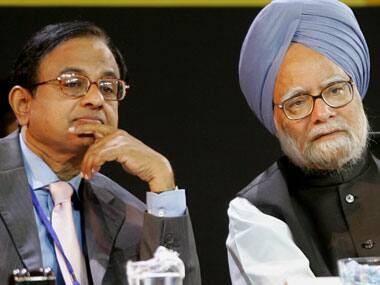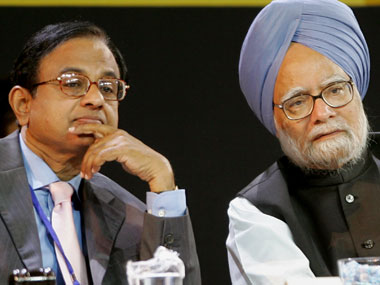In countries where democracy precedes official capitalism, the operating principle in economic reforms will be gradualism. Reform will happen in spurts, driven by compulsion, rather than in a torrent led by adventurist leadership. Since any change on the economic front will be influenced by political-electoral considerations – and it is not necessarily a negative influence – the process of shift in the economy will be slow yet solid; cumbersome yet inclusive; and less destructive. Gradualism won’t satisfy economists in a hurry. They want too many changes too soon - something a shock treatment for the economy, and by extension the people. They won’t have patience to allow the existing structures and mindsets to mature to accept and withstand changes. They would like the governments in power to introduce instabilities without leaving any scope for seamless structural adjustments. Thank God, we have politicians. They have to listen to people and people are what make democracies. [caption id=“attachment_584704” align=“alignleft” width=“380”]
 P Chidambaram and Manmohan Singh. Agencies.[/caption] Let’s face it. Politicians cannot afford to be seen as aggressive reformists in economic matters. They will introduce changes in bits and pieces, careful about the possibility of a backlash from the people they represent. In this context, it’s curious that the recent moves by the UPA government to hike Railway fares across the board and its hints towards a gradual hike in diesel prices have not been received with hoots of approval from the most vocal among economists. These moves, combined with the earlier ones, be it about FDI in multi-brand retail or changes in the banking sector or in other sectors, reflect that the government is back to the agenda of reforms. But at its own pace and own terms. Most of the governments that have come to power after India liberalized its economy in the early 90s have been following the same principle. This, whatever negative one might have to say against the political class, is an intelligent response to the calls for change. By making gradualism their guiding principle, they have done the country more good than harm. They have tried – with varying degrees of success – to make distribution of the gains accruing from the process of reforms equitable. Social sector spending has been up. Take the politics and narrow party-centric motives out of it and it is not such a bad thing at all. It’s okay for the governments to aim at generating wealth but they have the duty to spread it around for everybody’s benefit too. How the spending on the social sector is being done and who actually gains from it, are separate matters though. Corrections are required here. But there can be no argument on the broad principles involved in social sector spending by governments. The same is true of labour sector reforms. Governments cannot allow the private sector or public sector players the arbitrary power to throw people out of jobs. Economists have been demanding reforms in the Labour Act to enable companies to chuck people out to have leaner, smarter and more productive workforces. But jobs are important to lives of people, the state of the society and ultimately, stability of the economy. Can the government wash its hands of them? Certainly not. It would be politically immoral and suicidal too. Yes, there are many imperfections in the labour scenario which acts against the interest of firms willing to innovate, overhaul and experiment. Correction will eventually take place but at its own pace and with its own nuances. Gradualism will be at play here again. The point of the article is not to underline that everything is hunky-dory with our decision-making process or policies but to stress the point that it’s unrealistic to expect the government to thrust reforms on people. Reforms have to be an incremental process with enough scope for inclusion and none at all for disruption. Democracies are about dialogues. The street protests are as valid as form of dialogue as economists advocating reforms on television. The job of the governments is to find the right balance. Speed can wait.
P Chidambaram and Manmohan Singh. Agencies.[/caption] Let’s face it. Politicians cannot afford to be seen as aggressive reformists in economic matters. They will introduce changes in bits and pieces, careful about the possibility of a backlash from the people they represent. In this context, it’s curious that the recent moves by the UPA government to hike Railway fares across the board and its hints towards a gradual hike in diesel prices have not been received with hoots of approval from the most vocal among economists. These moves, combined with the earlier ones, be it about FDI in multi-brand retail or changes in the banking sector or in other sectors, reflect that the government is back to the agenda of reforms. But at its own pace and own terms. Most of the governments that have come to power after India liberalized its economy in the early 90s have been following the same principle. This, whatever negative one might have to say against the political class, is an intelligent response to the calls for change. By making gradualism their guiding principle, they have done the country more good than harm. They have tried – with varying degrees of success – to make distribution of the gains accruing from the process of reforms equitable. Social sector spending has been up. Take the politics and narrow party-centric motives out of it and it is not such a bad thing at all. It’s okay for the governments to aim at generating wealth but they have the duty to spread it around for everybody’s benefit too. How the spending on the social sector is being done and who actually gains from it, are separate matters though. Corrections are required here. But there can be no argument on the broad principles involved in social sector spending by governments. The same is true of labour sector reforms. Governments cannot allow the private sector or public sector players the arbitrary power to throw people out of jobs. Economists have been demanding reforms in the Labour Act to enable companies to chuck people out to have leaner, smarter and more productive workforces. But jobs are important to lives of people, the state of the society and ultimately, stability of the economy. Can the government wash its hands of them? Certainly not. It would be politically immoral and suicidal too. Yes, there are many imperfections in the labour scenario which acts against the interest of firms willing to innovate, overhaul and experiment. Correction will eventually take place but at its own pace and with its own nuances. Gradualism will be at play here again. The point of the article is not to underline that everything is hunky-dory with our decision-making process or policies but to stress the point that it’s unrealistic to expect the government to thrust reforms on people. Reforms have to be an incremental process with enough scope for inclusion and none at all for disruption. Democracies are about dialogues. The street protests are as valid as form of dialogue as economists advocating reforms on television. The job of the governments is to find the right balance. Speed can wait.
Economic reforms: Thank God, we have politicians
Akshaya Mishra
• January 11, 2013, 14:35:05 IST
Gradualism is the way to go about changes in the economy. Reforms hardliners can wait.
Advertisement
)
End of Article